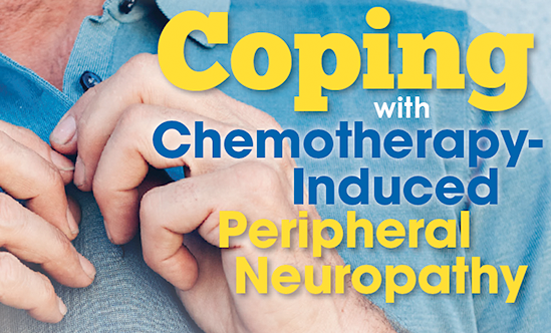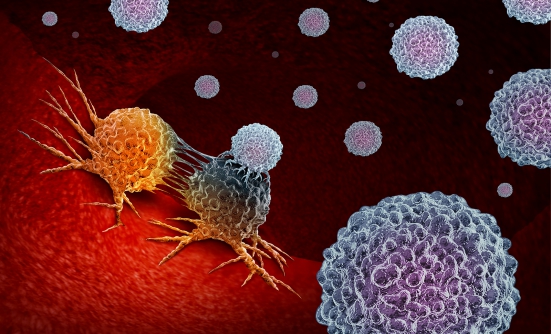Some chemotherapies can cause problems with sensory and motor skills; these disorders are called “neuropathies.” Most neuropathy problems improve after chemotherapy is finished.
Managing side effects associated with chemotherapy can help you get through your treatment in the best way possible. Some chemotherapies can cause problems with sensory and motor skills; these disorders are called “neuropathies.” Other medical problems, such as diabetes, alcoholism, tumors, and injury, can also cause neuropathies.
Symptoms
Neuropathy doesn’t happen to everyone who receives chemotherapy drugs. It is important to know what to watch for and how to cope if you have neuropathy-related symptoms, including tingling, burning, coldness, or numbness.
When these symptoms happen in the hands or feet, the condition is called “peripheral neuropathy.” Difficulty buttoning a shirt or picking up small items off a table, balance problems, and weakness may be signs of peripheral neuropathy.
Most neuropathy problems improve after chemotherapy is finished. Sometimes chemotherapy has to be given in a smaller dose, especially for people who already have neuropathy symptoms.
Drugs Causing Neuropathy
The most often used chemotherapy drugs that can cause neuropathy are:
- Taxanes: Taxol (paclitaxel), Taxotere (docetaxel)
- Platinum-based medications: Paraplatin (cisplatin), Platinol (carboplatin), Eloxatin (oxaliplatin)
- Vinca alkaloids: Oncovin (vincristine), Velban (vinblastine)
- Proteasome inhibitors: Ninlaro (ixazomib), Velcade (bortezomib), Kyprolis (carfilzomib)
- Immunomodulatory drugs: Revlimid (lenalidomide), Pomalyst (pomalidomide)
Can Peripheral Neuropathy Be Prevented?
There are no definite methods to prevent neuropathy. However, the following things can help keep you safe if you have peripheral neuropathy:
- Be extra careful when picking up or touching hot, cold, or sharp items
- Wear comfortable shoes with rubber soles to help with balance
- Remove throw rugs and other tripping and slipping hazards
- Avoid alcohol: some studies show that consuming alcohol may make neuropathy worse
- Report any symptoms of neuropathy or problems with sensation or motor skills to your oncology team
What Helps Relieve Peripheral Neuropathy?
There has been much research to find methods and medications that can help to control neuropathy. Some medications have been shown to help relieve symptoms of peripheral neuropathy, including Cymbalta (duloxetine), Neurontin (gabapentin), and pain medications (opioids).
Cymbalta is an antidepressant that affects how long serotonin and norepinephrine remain active in the bloodstream. This action can also help to reduce symptoms of peripheral neuropathy.
Neurontin may help relieve peripheral neuropathy by affecting how the brain receives pain signals from damaged nerves. Opioids, such as hydrocodone and oxycodone, may be prescribed alone or in combination with Neurontin for short-term relief of peripheral neuropathy.
Ask Your Cancer Care Team
There is not enough evidence that other methods, such as acupuncture, vitamin supple-mentation, or massage, are very effective at relieving peripheral neuropathy, but it is a good idea to talk with your cancer care team to hear what they recommend, or if they are opposed to such methods that may provide relief in some people.
Chemotherapy-induced peripheral neuropathy is a common side effect of many chemotherapy drugs. By knowing what symptoms to watch for, safety techniques, and what medications and therapies may prove helpful if neuropathy does develop can be helpful when these chemotherapy drugs are part of your treatment plan.
Key Points
- Chemotherapy-induced peripheral neuropathy is a common side effect of many chemotherapy drugs
- Neuropathy doesn’t happen to everyone who receives chemotherapy drugs
- The symptoms of neuropathy include tingling, burning, coldness, or numbness
- Some medications have been shown to help relieve symptoms of peripheral neuropathy, including Cymbalta, Neurontin, and opioids
















